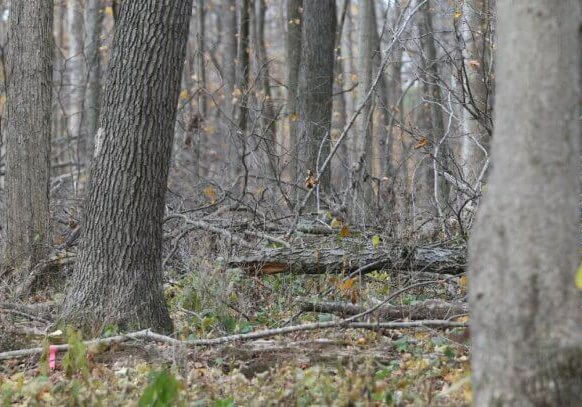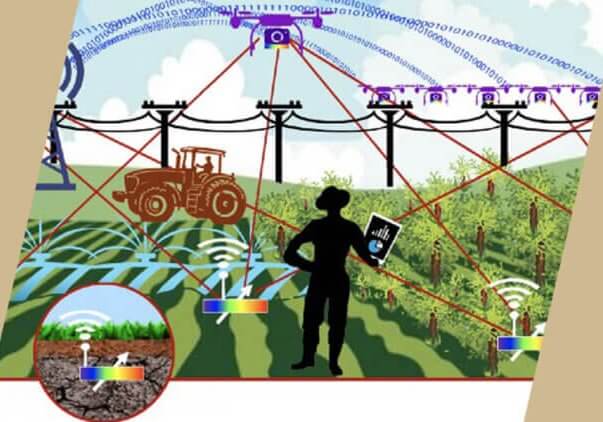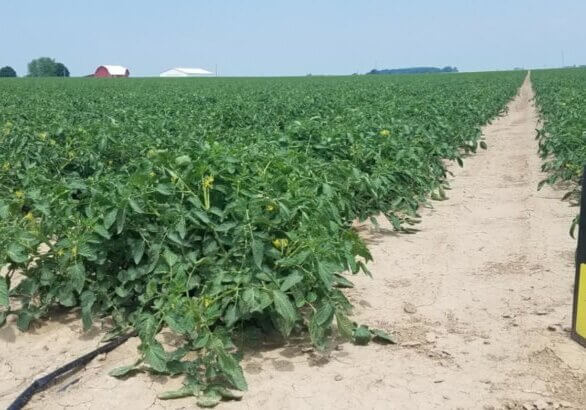"D
igital agriculture and data science are important tools for our farmers in Indiana,” said Karen Plaut, the Glenn W. Sample Dean of the College of Agriculture. “We look forward to finding opportunities for our researchers, Extension specialists and students to collaborate with Ag-Analytics as they join us on campus as part of the Convergence Center.”
A recent addition to Purdue’s Discovery Park District, the Convergence Center for Innovation and Collaboration serves as a “front door” to companies seeking to work with Purdue. The 145,000 square-foot building offers modern workspaces adjacent to campus.
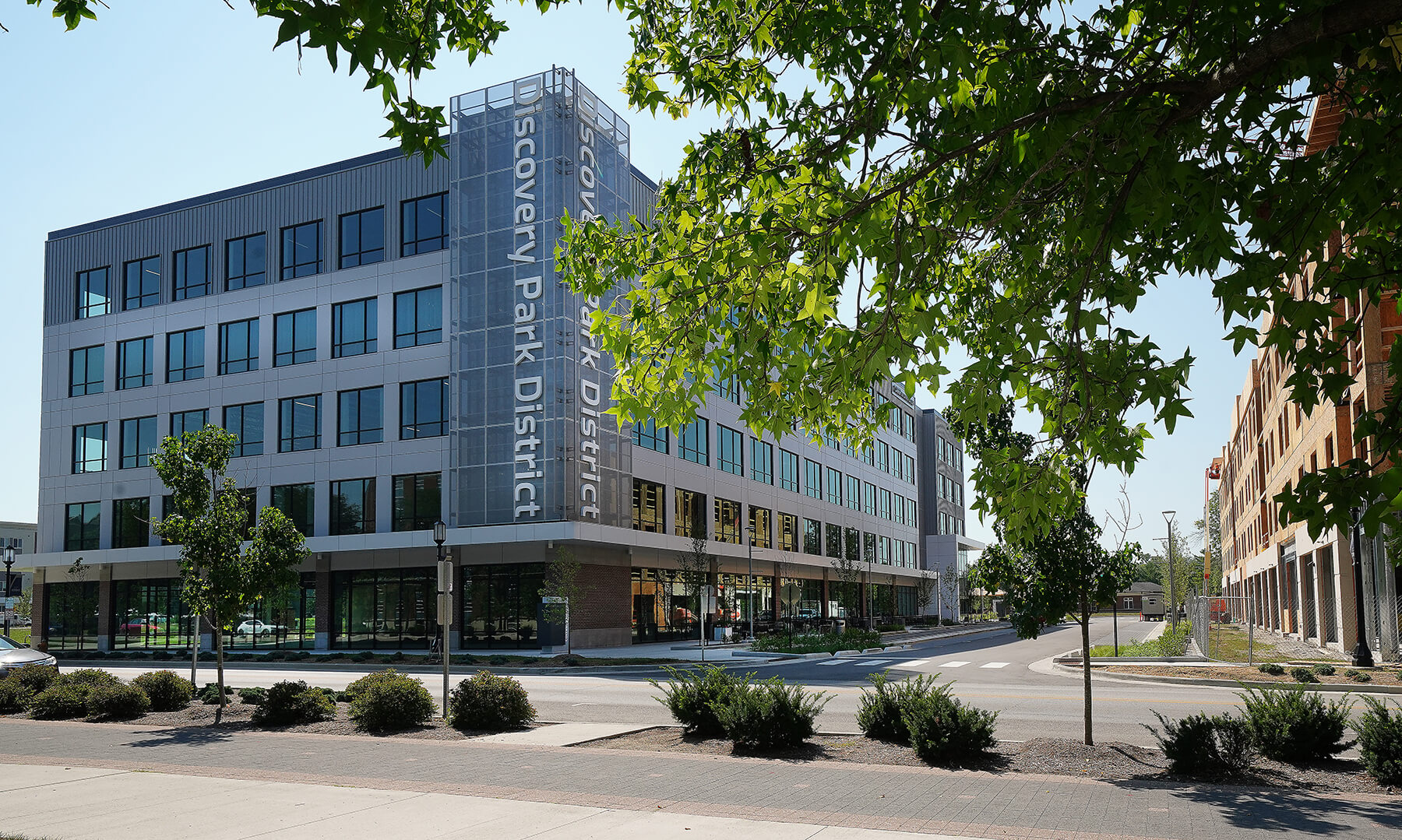
“Companies including Beck’s and Bayer already have spaces in the Convergence Center,” noted Bernie Engel, associate dean of agricultural research and graduate education. “It’s great to have companies that are interested in agriculture connecting here at Purdue.”
Six years after he founded Ag-Analytics in New York, CEO Joshua Woodard decided to open a new branch in Indiana. His company provides advanced analytics to growers through their profit mapping and artificial intelligence product, Profit Layers. The company also offers on-demand UAV services.
“This is certainly a wonderful time to be in agriculture,” said Dennis Buckmaster, a professor in the Department of Agricultural and Biological Engineering and dean’s fellow for digital agriculture. “Untapped potential in data sets and streams is becoming increasingly common. We’re currently in this realm where people who have a lot of data don’t have the data science skills, software or time to learn from it. Therein lies the potential of artificial intelligence.”
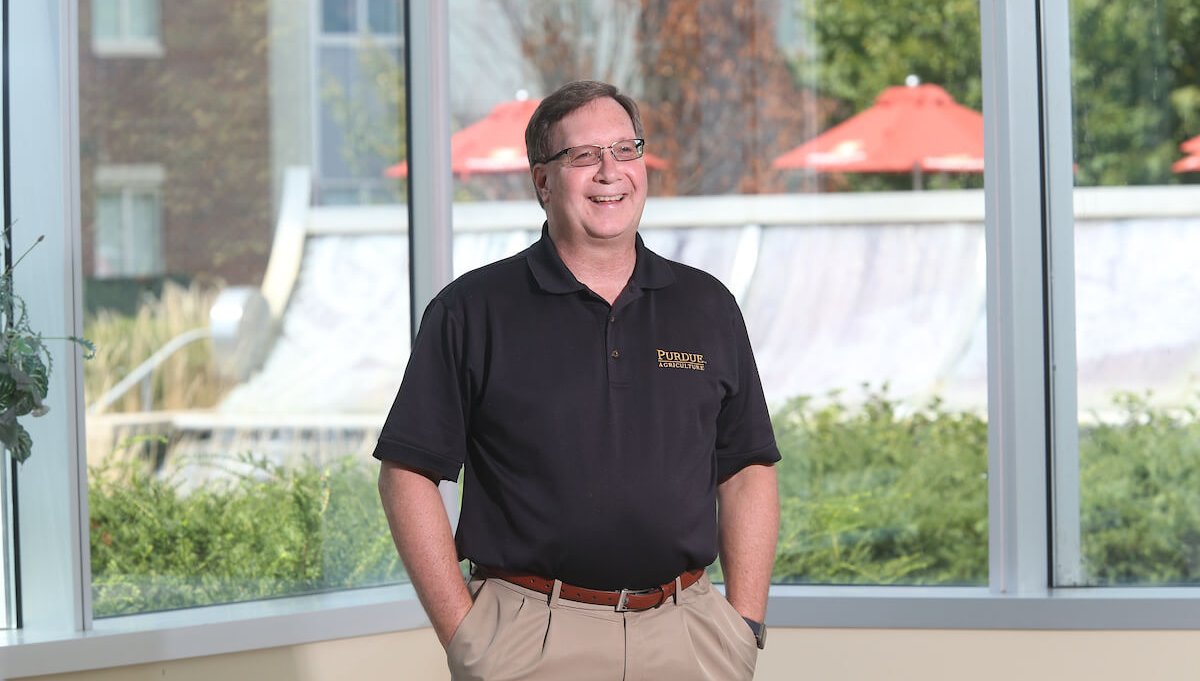
To help, Ag-Analytics combines public data from sources such as NASA and the United States Geological Survey with users’ precision agricultural data. Ag-Analytics then runs it through machine-learning models and other algorithms to provide intelligent forecasting and prediction tools. They present the resulting information through data visualization, an output focused on user-friendliness and simplicity.
Dan Dawes, senior director for strategy and innovation for AgriNovus Indiana, has begun introducing Ag-Analytics to local businesspeople and resources. “Indiana is a very business-friendly environment,” said Dawes. “From the perspective of an agtech company, we have a wide variety of strong companies in place that provide an opportunity for startups to accelerate their growth.”
“One area of potential collaboration is through the work we are doing with the Wabash Heartland Innovation Network (WHIN) to make the 10-county region around Purdue’s West Lafayette campus the epicenter for next-generation manufacturing and digital agriculture,” noted Plaut.
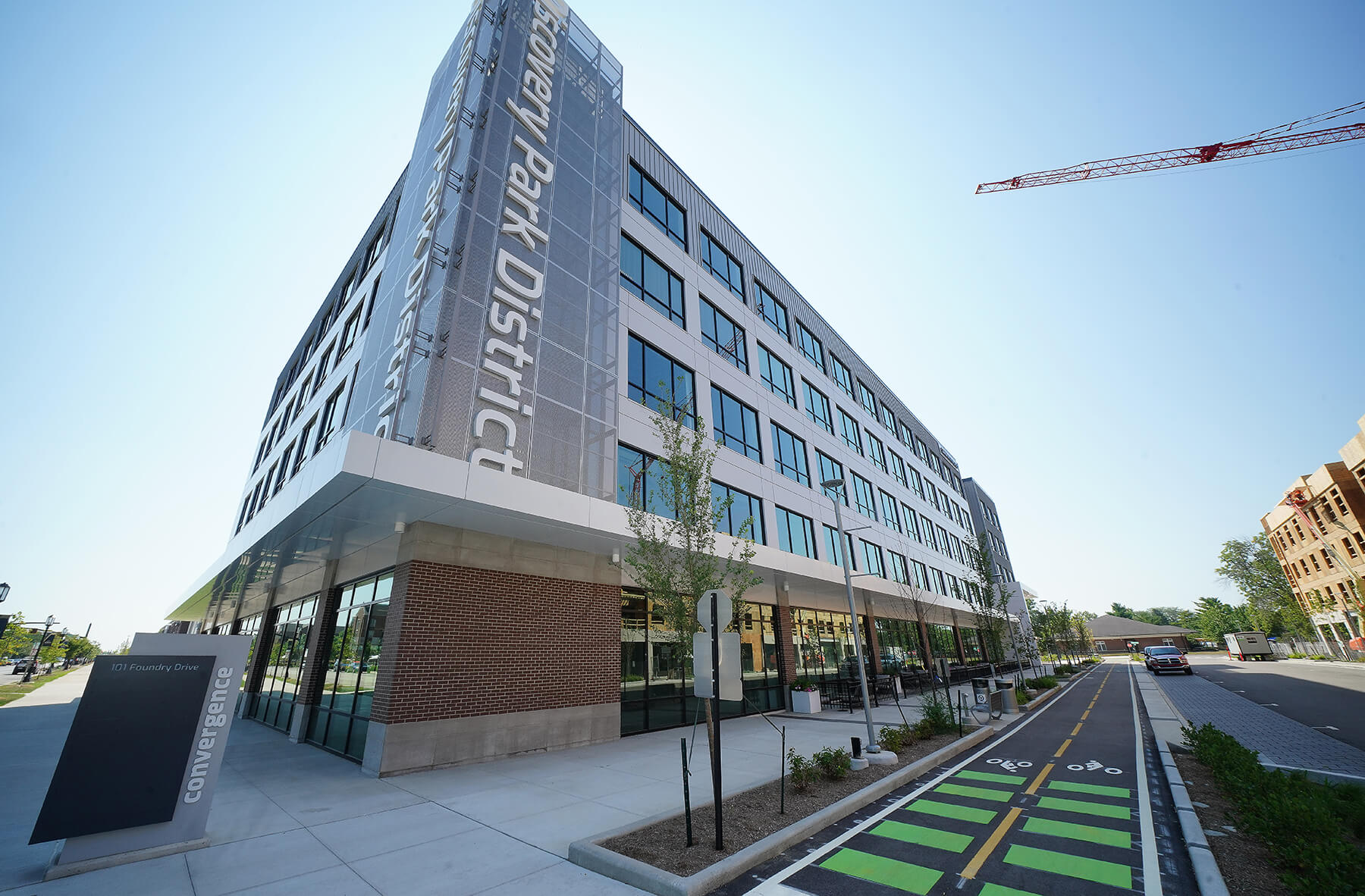
WHIN works to fuel prosperity in the area by harnessing the power of Internet-enabled sensors. WHIN plans to build upon agriculture, manufacturing and engineering while focusing on the region’s sense of community and low cost of living.
“Another thing companies like about West Lafayette is access to the talent at Purdue University,” said Dawes. “There are plenty of good reasons to consider the region, but being in such close proximity to potential interns, staff and research partners is valuable.”
"Digital agriculture is an area of emphasis for the College of Agriculture, and data science is a priority for the university,” explained Engel. “Ag-Analytics is really in that sweet spot. They are looking at and analyzing big data to help make improved decisions in the agricultural production and agribusiness spaces. As a result, it is fantastic to have them located at Purdue in the Convergence Center.”
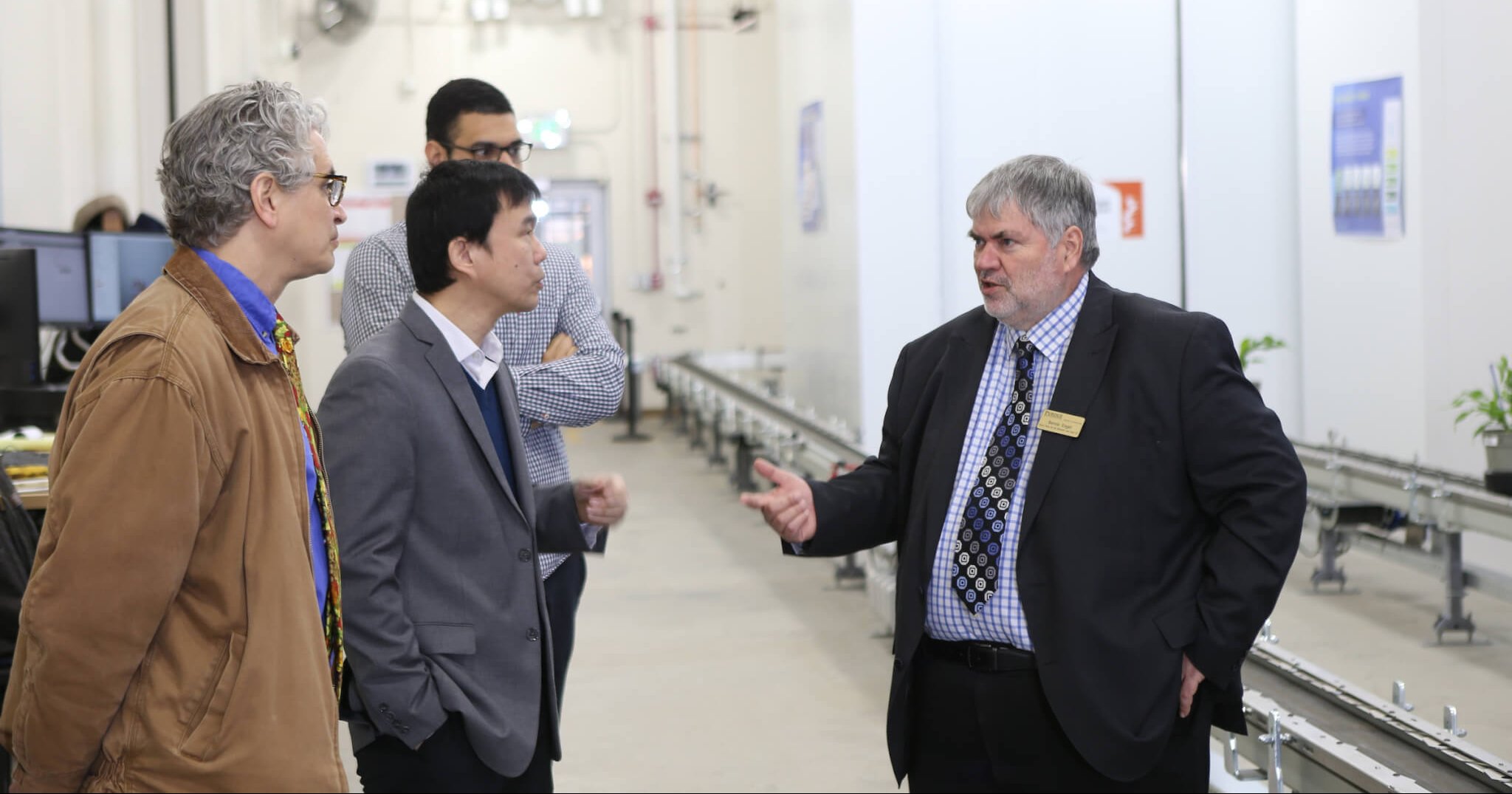
COVID lessons applied to forestry, climate change
Many of the countries that successfully curbed their COVID-19 infection rates did so through the open sharing of vast amounts of data that allowed health officials to inform the public and distribute medical resources. It’s a model that officials from the United Nations Food and Agriculture Organization (FAO) believe can also slow the world’s deforestation, forest degradation and climate change.
Read Full Story >>>Purdue University to collaborate in NSF-funded Engineering Research Center to develop the Internet of Things for precision agriculture
Purdue University will be a partner in a new National Science Foundation (NSF) Engineering Research Center created to develop advanced agricultural technologies to address food, energy and water security challenges.
With a five-year, $26 million grant, the NSF has established the Engineering Research Center for the Internet of Things for Precision Agriculture (IoT4Ag). Engineering Research Centers (ERCs) are NSF’s flagship engineering program for convergent research to address large-scale societal challenges.
Read Full Story >>>Purdue program changes the drift of communication
By Brian Wallheimer A dozen years ago, Steve Smith could anticipate the calls coming in from farmers across the state. They’d report when and how much of their crops had been damaged as glyphosate being sprayed on nearby fields caught the wind and landed on their non-resistant tomatoes. “We were having tremendous annual drift episodes,…
Read Full Story >>>COVID lessons applied to forestry, climate change
Many of the countries that successfully curbed their COVID-19 infection rates did so through the open sharing of vast amounts of data that allowed health officials to inform the public and distribute medical resources. It’s a model that officials from the United Nations Food and Agriculture Organization (FAO) believe can also slow the world’s deforestation, forest degradation and climate change.
Read Full Story >>>Purdue University to collaborate in NSF-funded Engineering Research Center to develop the Internet of Things for precision agriculture
Purdue University will be a partner in a new National Science Foundation (NSF) Engineering Research Center created to develop advanced agricultural technologies to address food, energy and water security challenges.
With a five-year, $26 million grant, the NSF has established the Engineering Research Center for the Internet of Things for Precision Agriculture (IoT4Ag). Engineering Research Centers (ERCs) are NSF’s flagship engineering program for convergent research to address large-scale societal challenges.
Read Full Story >>>Purdue program changes the drift of communication
By Brian Wallheimer A dozen years ago, Steve Smith could anticipate the calls coming in from farmers across the state. They’d report when and how much of their crops had been damaged as glyphosate being sprayed on nearby fields caught the wind and landed on their non-resistant tomatoes. “We were having tremendous annual drift episodes,…
Read Full Story >>>